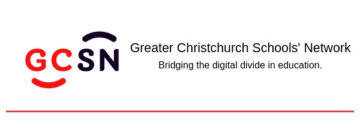February 18, 2023
Building equity into the reauthorization of ESEA
A “Think Twice” review of a think tank report from the folks at the National Education Policy Center.
Inside Look Great Lakes Center’s exclusive subscriber email featuring key points, information and social media content about reviews and research
Hello, Great Lakes Center subscriber: Students, schools and communities have had trying times during the last few years through the COVID-19 pandemic. Some states and many local agencies have been working to meet both the health and educational needs of students and to address racial and socioeconomic inequity that the pandemic elevated.We know success in those efforts greatly depends on an effective federal role in our education system. The federal government plays a vital role in education nearly 60 years after the passing of the Elementary and Secondary Education Act (ESEA), which is the fundamental legislation on K-12 schooling in the U.S. Passed around the same time as the Civil Rights Act and Voting Rights Act, ESEA served to support student civil rights and expand equality in educational opportunities.As the U.S. education system deals with major issues like the pandemic, racial and socioeconomic inequalities and the politicization of curriculum, the reauthorization of the ESEA presents opportunities to make education more equitable.Read on to learn more.Maddie Fennell
Executive Director
Great Lakes Center for Education Research and Practice
SUMMARY
The National Education Policy Center released a policy brief, “A Civil Rights Framework for the Reauthorization of ESEA,” authored by Elizabeth DeBray from the University of Georgia; Kara S. Finnigan from the University of Michigan; Janel George of Georgetown University Law Center; and Janelle Scott from the University of California-Berkeley.
The ESEA was most recently reauthorized in 2015 as the Every Student Succeeds Act (ESSA), which itself was due for reauthorization after the 2020-21 school year. The ESEA remains the federal government’s most important tool to promote equity in public education, and its reauthorization gives lawmakers an opportunity to promote access to quality education by fostering racial and socioeconomic equity in education.
The policy brief’s authors developed a civil rights framework that aids lawmakers in the redesign of ESSA that places students, staff, school systems and collaboration at the center of ESEA and considers inequities facing education today.
The authors’ approach centers on the health and emotional wellbeing of students, families and staff, and considers the historical, structural and environmental factors that have made educational inequity a challenge.
RECOMMENDATIONS
To promote equity in the next authorization of ESEA, the authors urge Congress to consider an approach that includes the following recommendations for school systems, students and staff:
Recommendations on systems
- Incentivize racial, linguistic, and socioeconomic diversity and integration in schools, including through regional equity enrollment strategies.
- Improve targeting and equitable funding structures.
- Incentivize and fund renovation of facilities and infrastructure.
Recommendations on students
- Support students’ individualized learning needs.
- Ensure all families have access to high-quality early childhood care through our public education system.
- Improve support for system-involved youth.
- Target federal funds to support state and district efforts to promote student well-being and mental health.
Recommendations on staff
- Provide high-quality ongoing professional development and updated and responsive pre-service education and training for teachers, counselors, and leaders.
- Promote educator well-being and mental health.
- Provide and ensure workforce diversity, stabilization and capacity building.
ADDITIONAL RESOURCES
- Read Every Student Succeeds Act on the U.S. Department of Education website
- The ebbs and flows of federal school integration policy since 2009 | Forum of American Journal of Education
- Advancing integration and equity through magnet schools | Learning Policy Institute
- Federal action removes long-standing obstacle to school integration | Learning Policy Institute
SOCIAL SHARES
Want to share this Think Twice Review with your social networks? We drafted some sample social media posts for your use.
Policymakers should use an equitable, evidence-based approach to reauthorizing #ESEA that considers racial, socioeconomic and other inequities in #Education Policy.
In order to build equity into federal #EducationPolicy, policymakers should consider the needs of school systems, students and staff. Read more:
Copyright © 2019 Great Lakes Center for Education Research & Practice, All rights reserved.
You are receiving this email because you opted in via our website.Our mailing address is:
Great Lakes Center for Education Research & Practice
PO Box 1263
East Lansing, MI 48826-1263
No comments yet.
RSS feed for comments on this post. TrackBack URI
- SEO Powered Content & PR Distribution. Get Amplified Today.
- Platoblockchain. Web3 Metaverse Intelligence. Knowledge Amplified. Access Here.
- Source: https://virtualschooling.wordpress.com/2023/02/18/building-equity-into-the-reauthorization-of-esea/
- 2019
- a
- About
- access
- Act
- Action
- address
- After
- agencies
- aids
- All
- American
- and
- and infrastructure
- approach
- around
- authorization
- authors
- because
- Box
- build
- Building
- Capacity
- care
- Category
- Center
- Centers
- challenge
- Civil Rights
- clear
- collaboration
- comment
- comments
- Communities
- Congress
- Consider
- considers
- content
- COVID-19
- COVID-19 pandemic
- Curriculum
- data
- Deals
- Department
- depends
- developed
- Development
- district
- Diversity
- drafted
- during
- Early
- East
- Education
- educational
- Effective
- efforts
- elevated
- ensure
- environmental
- equality
- equity
- Ether (ETH)
- Every
- Exclusive
- Expand
- facilities
- facing
- factors
- families
- Featuring
- Federal
- feedback
- few
- Flows
- following
- Forum
- fostering
- Framework
- from
- full
- fund
- fundamental
- funding
- funds
- George
- Georgia
- gives
- Government
- great
- greatly
- Health
- high-quality
- historical
- How
- HTTPS
- identifier
- important
- in
- includes
- Including
- inequalities
- information
- Infrastructure
- integration
- issues
- itself
- journal
- Key
- Know
- Last
- Law
- lawmakers
- leaders
- LEARN
- learning
- Legislation
- List
- local
- long-standing
- made
- mailchimp
- major
- major issues
- make
- many
- Media
- Meet
- mental
- Mental health
- Meta
- Michael
- Michigan
- Middle
- more
- most
- National
- nearly
- needs
- networks
- New
- new policy
- next
- obstacle
- ongoing
- opportunities
- Opportunity
- order
- Other
- pandemic
- passed
- Passing
- Places
- plato
- Plato Data Intelligence
- PlatoData
- PO
- points
- policy
- policymakers
- possible
- Post
- Posts
- practice
- presents
- press
- professional
- project
- promote
- provides
- public
- publications
- quality
- Read
- receiving
- recently
- recommendations
- redesign
- reduce
- reflect
- regional
- released
- remains
- report
- research
- reserved
- resource
- responsive
- review
- Reviews
- rights
- Role
- same
- School
- Schools
- secondary
- selected
- Share
- should
- Simple
- since
- site
- Social
- social media
- Social Media Posts
- social networks
- socioeconomic
- some
- Sound
- spam
- Staff
- State
- States
- strategies
- structural
- Student
- Students
- success
- support
- syndication
- system
- Systems
- TAG
- tank
- targeting
- teachers
- The
- the Law
- Think
- think tank
- Through
- time
- times
- to
- today
- today’s
- tool
- top
- Training
- u.s.
- under
- university
- University of Michigan
- updated
- use
- via
- vital
- Voting
- Website
- wellbeing
- which
- WordPress
- Workforce
- working
- year
- years
- Your
- youth
- zephyrnet




![[COMUNICAR 77] New languages and cultures. Teaching languages for global and digital communication](https://platoaistream.net/wp-content/uploads/2023/07/comunicar-77-new-languages-and-cultures-teaching-languages-for-global-and-digital-communication-360x84.jpg)









